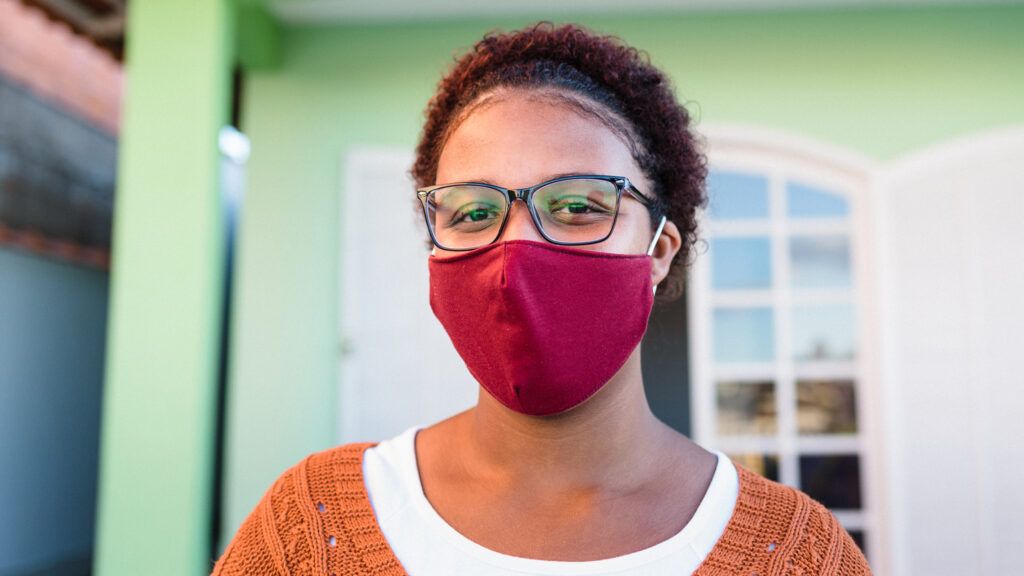Lauri Scharf, LSW, MSHS, is a Care Consultant & Master Trainer at Benjamin Rose Institute on Aging
Even under the best possible circumstances, the holidays can deliver a mixed bag of emotional and physical challenges to caregivers. When your loved one has dementia or a chronic illness, it can be tough to muster joy and good will toward all at this time of year. Now, as Covid restrictions continue, it may feel downright impossible.
Combining holiday planning and family gatherings with day-to-day caregiving responsibilities was already stressful enough. Since March, however, we’ve faced extreme adjustments. We limit where we go, don masks when we do venture out, social distance and scrub our hands endlessly. Even though we may have felt a brief sense of “normalcy” during the more temperate months, another round of restrictions on gatherings and travel threatens to make the holidays less than celebratory. But there are ways to bring back a sense of peace and happiness to your season as you confront these challenges.
Tips for Covid-friendly get-togethers
Just as with caregiving, getting through the holidays in the face of Covid starts with creating reasonable expectations. Ironically, the Covid restrictions on gatherings may in fact help to decrease stress not only for you but for your loved one. For people with dementia, large gatherings with a number of people conversing typically heighten agitation.
Virtual gatherings rather than in-person ones are highly recommended this season. But if you still plan to host a small get-together, the following tips can help you to ensure that it is within safety guidelines:
- Wear a mask if you’re inviting others to come into your home.
- Ask your guests before they arrive to check their temperatures . Keep face masks and sanitizer ready at the door for those who may have forgotten to bring theirs.
- Alter your menu. Gone are the days of grabbing many different snacks from a tray. Rather, place the food items into individual paper cups. Consider buying single-serve drinks in cans or bottles rather than in a larger container. It may be a little more costly, but it can help to reduce multiple contacts on the surface. Keep a lot of paper napkins on hand for guests to use.
- Put several waste containers with lids in various spots where you’re hosting your gathering so that guests can throw away all used items. No-touch trash cans are particularly useful.
- Don’t forget to keep extra hand sanitizer throughout your home and disinfectant wipes in the bathroom so that guests can move about freely when encountering door, toilet and faucet handles. You may want to also have paper towels in the bathroom for one-time use.
- If you can, place chairs in an arrangement that allows for ease of movement as well as social distancing. At this time, precaution may take precedence over an attractive seating arrangement.
- Watch your budget. It might be a good idea to have a limited gift exchange or to give homemade presents.
Minimize stress by keeping plans doable
Stress is a good measure of how much we feel in control of our lives. When we feel we’ve lost control, stress can be palpable. To help manage stress, look for ways to reinforce your sense of control. A good approach at the outset is to create realistic expectations. This season, it might help to let go of some of your favorite holiday traditions, if only temporarily. You might consider coming up with a Covid holiday plan that is doable. When you bring family members into the creation of new traditions, you may even add a new dimension of celebration to your holiday. The added bonus is that this can relieve self-imposed pressure to make the holidays “perfect.”
You may also want to devise a “Covid response plan” in order to ease concerns surrounding the holiday. These strategies may help:
- Think ahead about what would happen if you, the caregiver, were to become ill. Draw up a list of contacts with their phone numbers and have it on hand so that you can call them if you need to. If you are the primary caregiver for your loved one, write out his or her care plan, including medications/dosage, preferred daily schedule, and food likes and dislikes.
- Plan where to get treatment—such as Urgent Care, the hospital, or your primary care doctor—including office hours. Find out whether telehealth is available, and keep the phone number of your preferred pharmacy nearby.
Another important component to stress management is paying attention to your own needs. Although it can be hard to find time for yourself during the holidays, it’s more necessary than ever. Make sure you:
- Keep up your physical health by eating smartly and getting adequate rest. Realize it’s okay to schedule downtime or even a nap into your day. Try not to let the healthy habits you had before holiday time fall by the wayside.
- Consider ways you can maintain some structure in your daily schedule. Covid-19 has up-ended many schedules, and holidays tend to do so also. Structure can help to quell unsettled feelings.
- Explore ideas to recognize the religious significance of the holidays. Even if you cannot attend a service in person, many faith communities offer ways to participate virtually.
Battling the holiday blues
We all have times where we feel down or “blue.” When you feel this way, it can help to:
- Acknowledge your emotions. Know that it’s all right to express sadness and loss, even at holiday time.
- Look for ways to create community, even if it has to be virtual. Don’t discount the health effects of loneliness and isolation. It is important to address them.
- Make sure you find trusted sources of information about Covid. Find ways to avoid the politicization of the virus, understand your risk factors and plan accordingly.
- Don’t ignore your blues. Feelings of sadness tend to come and go with time. If you notice that periods of sadness are consistently lasting longer and getting harder to escape, you may want to seek professional help from your local mental health community.






